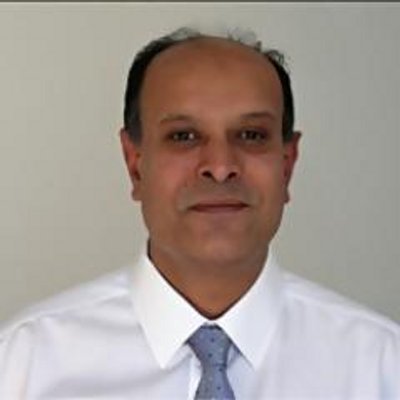Get the latest financial news, insights and expert analysis from our award-winning MoneyWeek team, to help you understand what really matters when it comes to your finances.
You are now subscribed
Your newsletter sign-up was successful
Want to add more newsletters?

Twice daily
MoneyWeek
Get the latest financial news, insights and expert analysis from our award-winning MoneyWeek team, to help you understand what really matters when it comes to your finances.

Four times a week
Look After My Bills
Sign up to our free money-saving newsletter, filled with the latest news and expert advice to help you find the best tips and deals for managing your bills. Start saving today!

With no background in diamonds or mining, Philip Manduca, executive chairman of Aim-listed Paragon Diamonds (Aim: PRG), admits to being an unusual boss for such a company. Indeed, he seems to revel being an outsider in an industry he reckons is headed for a big shakeup, an upheaval that Paragon is busy positioning itself to take advantage of.
Manduca is a seasoned, successful City veteran who helped pioneer the hedge fund industry in Europe in the 1980s. Over 25 years in the financial industry he has founded, managed and sold a number of asset management businesses. His family background is steeped in business and finance. His father set up a security firm that was subsequently sold to Securicor. One brother, Paul Manduca, is chairman of Prudential. Another, Frank Manduca, is a fund manager at UBS.
As well as being executive chair of Paragon, Manduca is the chief executive of Titanium Capital, a private equity investment group focused on hard-asset investment. He was appointed executive chairman of Paragon last August following Titanium's acquisition of a near 30% stake in the company.
MoneyWeek
Subscribe to MoneyWeek today and get your first six magazine issues absolutely FREE

Sign up to Money Morning
Don't miss the latest investment and personal finances news, market analysis, plus money-saving tips with our free twice-daily newsletter
Don't miss the latest investment and personal finances news, market analysis, plus money-saving tips with our free twice-daily newsletter
Manduca's enthusiasm for diamonds as an investment really took hold three years ago. He was a fan of gold during its long bull market, and as far back as 2008 he predicted that it would reach $2,000 an ounce (it eventually peaked at not far off that level $1,930 in September 2011). But not long after the peak, he came to the conclusion that gold "was actually no longer fit for purpose". Instead, when it came to hard assets, diamonds were the way to go.
"Cash is in a bear market"
What drove Manduca's conversion to the merits of diamonds? "You are better off talking to historians than economists these days. Nobody knows what's going to happen next, including the chairman of the Federal Reserve. And they haven't for some time. What they do know is what can go wrong how apocalyptic things can be in terms of social strife, de-globalisation, and domestic and international politics when things go wrong."
He argues that the spate of QE programmes since the crisis have led to money becoming debased: "We've got central banks printing money to buy government debt, for goodness sake. That is every banana republic's mantra! I'm not into the rights and wrongs of it I couldn't care less, frankly. I know money is getting debased, that cash is in a bear market because no one wants it. What I am doing is observing and understanding, coming to a view as to what to do about it."
Even worse than the debasement of cash for Manduca is what he see as the "politicisation" of banking systems. "The US government knows where every major dollar transaction is going on in the world. Banks are having to report everyone who is their client now, as a matter of course. Offshore-ism is being brought onshore. And the tax authorities are jumping into the pie."
Rise of the first generation' economies
Among those most greatly affected by these developments is a group of mega-rich individuals who have emerged from what Manduca describes as first generation' economies. He believes they deserve special attention. "These individuals are now generating the largest quantum of money ever in the history of mankind and for them these developments are all rather scary. Ukrainian billionaires, Russian billionaires, Chinese billionaires, Indian billionaires, Middle Eastern billionaires there are tonnes of them."The sums of money these guys represent is just staggering. Staggering. And it is a major driver of the wealth divide we see in many parts of the world. That money is, typically, originating from political affiliations. That's their business, not ours. If they've been, say, under the communist yoke for 90 years, who are we to tell them what they should do now? "
"Gold is no longer fit for purpose"
What he is far more interested in is the behaviour of the colossal volumes of money that these first generation' economies are generating: "The sum is massive, it's unstable, and it has considerable velocity it's moving around a lot. It is scared' it does not want to get trapped inside a bank, within a border, be visible to a government or a tax authority: it wants mobility.
"In the real world, it isn't so much the quantum of people, it's the quantum of money that finds itself in that position."
One big question for the ultra-rich first generation-ers' is which store of value to plump for. The key conditions are that it must be easily accessible, highly portable, and with minimal costs for storage at any point. "Even better would be if it is something that has diminishing supply and rising demand, with supply that will not increase if the price goes up. It definitely mustn't be visible to anybody because these guys don't trust anyone."
The case against gold and bitcoin
Manduca immediately rules out bitcoin: "People say it will be proven in the future. To me it's unproven so I don't care about it. Don't need to take a bet, don't want to take a bet."
How about gold? For Manduca there is a very good reason that, despite the increasingly stressed geopolitical and macroeconomic environment, gold has remained stubbornly soft at around $1,200 an ounce. "It is not fit for purpose. It's the wrong investment to achieve the purpose of having access to one's money wherever and when one wants.
"Gold can't be moved physically across borders and outside of the banking system, doubts in which would be the major reason not to own it. It is wholly visible to governments and tax authorities while it resides within the banking system and so is subject to seizure or being frozen. It also has a high level of elasticity to price production can be significantly increased when the price rises."
Manduca believes that as it has had to be more closely examined because of a deteriorating global financial and political environment, "gold has partially failed its own stress tests".
He adds: "There is a huge investment demand out there for mobile hard assets and it's being metamorphosed, as you can see quite clearly, in central London property, Manhattan property, in prime property everywhere, and in the wine market, the art market, the vintage car market, and many other such things."
"Gold is failing its own stress test"
None of these, however, quite offer the invisibility and mobility of Manduca's favoured hard asset: diamonds. "I could have walked into this interview with $100m worth of diamonds, although, trust me, I haven't! You will not need to see much of a shift in asset allocation from cash to diamonds going forwards, given the quantum of [first generation] money we're talking about, to see an astronomical change in price. I do think it will happen. "
There are three broad diamond market categories. First, there are the flawed "substandard" industrial diamonds, used for polishing other diamonds and in the production of electronic chips, information processors and laser technology components. Then there are the stones used for jewellery. Finally, there are the flawless or near-flawless investment-grade stones.
While investment-grade diamond prices have been on a broadly rising long-term trend, there have been blips, most notably in the years following the financial crisis. As financing dried up for diamenteries the diamond cutters and polishers they were forced to reduce their purchases of diamonds from the producers and sell at lower prices.
2014 was not a great year either, with rough diamond prices falling nearly 7% in the final three months of the year the biggest quarterly decline in more than two years. This time it was the result of the Antwerp Diamond Bank closing down in September 2014 after its sale to a Chinese company collapsed. ADB was a major source of finance for 80 years to diamond traders, cutters and polishers in the Belgian city, the world centre for the industry.
But now things are looking up for the market. De Beers, one of the world's largest rough-diamond producers, predicted a couple of weeks ago that prices will recover during the rest of this year.
Diamonds: the billionaire's best friend
Manduca is not terribly worried about the recent price weakness. Investors in investment-grade stones are not looking at short-term fluctuations, he says. "They want to come out the back end of any crisis, of any situation, and have a store of value. So a better metric of a store of value is to take a three [year] by three [year] or, even better, a five by five trend line. That cuts out the short-term fluctuations which actually don't have anything to do with the intrinsic asset.
"What you want to know at the end of that five year period is, have I got the store of value that I thought I had?' You will not be able to say that about cash, for instance, because it's getting so heavily debased. Put yourself in the place of a Russian, Ukrainian, Indian, Chinese, a Middle Eastern billionaire what would you do? Investment grade diamonds not any other type, you can't mix a Mini with a 1960 Ferrari can you? tick all their boxes."
Options for gaining exposure to diamonds remains very limited. Buying shares in diamond mining companies remains the most popular route for retail investors. Paragon itself is in the process of developing a promising flagship kimberlite diamond project in Lesotho, southern Africa, an established and extensive high value diamond producing region. Lemphane is just 27 miles from London-listed Gem Diamond's world class Letseng mine.

Lemphane is headed for initial production in the second quarter, with a further ramping up planned for 2017. Manduca is confident the mine will deliver: "We've got the best diamond address in the world a quarter of world's largest diamonds have been sourced from Lesotho."
Paragon's break-even for the project is $610 a carat, but sampling to date has already indicated that the mine holds a minimum of $1,000 a carat. He is confident that further, planned bulk sampling will indicate a minimum of $1,500 a carat for Lemphane. Internally, management believes it could reach $2,000/carat. Open pit mining is envisaged for the first 15 years followed by potentially ten years of underground operation.
In about 18 months, Paragon hopes to have in hand an independently assessed, defined resource that will enable it to secure further funding for development of the project. Fully funded, Manduca reckons the company will be worth $100m versus just £16m currently. House broker Northland currently has a buy rating on the stock with a 12.9p target versus 6.07p earlier today.
The company has several other licences in Lesotho, Zambia and Botswana but plans to sell them off with funds generated being used to acquire a proven diamond resource. An acquisition target has already been identified: "It would be sensible for us to maximise the economies of scale, which means that it has to be geographically quite proximate to Lemphane. If we are able to secure a suitable mine that, say, would double our production, be a proven reserve, I think that would be a big asset for the company. It's not so much about securing cash flow, it's about getting the company properly valued."
Paragon Diamonds to control its own destiny
An important part of Manduca's strategy for Paragon is that as well as diamond production it will be in control of distribution. He explains why: "The diamond chain goes from mining through polishing and cutting to wholesaling and retailing. Miners take the greatest risk, spend the most across the chain and yet sell the production very quickly because often they are undercapitalised and all they want to do is mine, prove they are right on the geology to help secure the next load of funding.
"The diamond industry is one of those very rare industries that is actually back to front, because the guys at the end of the stream, the traders and retailers, make the most money and have the most power."
Paragon's ambition is to be vertically integrated, thereby securing maximum exposure to the underlying asset's value. There have been one or two similar attempts to combine all the various operations in the past without success. "The people that have tried it have done so through joint ventures, which are not partnerships and have divorce written into them, at some point or other, in the future."
Manduca plans not to be pressured through underfunding to sell Paragon Diamonds quickly. He'll hire experts to process the diamonds. And he'll find his own markets, Dubai being one of them.
"The diamond industry is back to front"
In January, the company secured a $12m package from Dubai-based finance house International Triangle General Trading in exchange for a 30% stake in the company. ITGT, which has strong connections with Middle Eastern royal families, will help distribute the company's diamonds.
Manduca adds: "Paragon is not a mining company. We've shifted it to becoming more of a diamond company, with the money to afford to be just that. It always takes money to be what you want. ITGT is an investor and my partner because it has a similar size stake in Paragon as I have.
"Every great business needs great distribution. There's no point in having a great product that you don't know how to sell the British car industry from long ago reminds me of that. It's very important if we are going to vertically integrate, that we've got some great distribution structures. Paragon's distribution structure is going to be through Dubai and we very much believe that Dubai is going to become the major diamond centre in the world, within the next three-to-five years."
He believes Antwerp's position as the global capital for the diamond industry is "becoming more and more tenuous, less and less stable, and being sustained with less and less rationale. With ADB having gone, financing there is in a total mess.
Diamonds in Dubai
"I think that diamonds have gone global. Markets tend to move to money. It's becoming less and less about just two major centres: New York and Europe. There is a shift south and east, and Dubai makes total sense from that perspective. All I need is that Dubai grows in importance and I don't have any doubts in my mind that it's going to do that."
If Manduca's form is anything to go by you would not want to bet against his predictions. Back in 1981, at Merrill Lynch, he was probably the first person in Europe to engage in financial futures, now commonly called derivatives. In so doing he helped lay the foundations for the European hedge fund industry: "I wouldn't say I contributed to its growth, that's ridiculous but yes I did help pioneer in it in the European context."
By the early 1990s he was setting up and managing his own hedge funds, including one that became heavily exposed to emerging eastern European countries. Things were going swimmingly for Manduca until the Russian financial crisis of 1998: "You would never have thought that a major country and Russia was and is undoubtedly one of those could default and devalue on the same day and get away with it. That taught me a lot about emerging markets.
"One lesson is that people with no traditions, and the Russians did not have what I call financial market traditions, feel they can do anything they want. The second thing I learnt from it is how quickly the West appeases and forgives erratic behaviour. Which now means anything is possible.
"It also taught me that politicians will do anything they have to, to stay in power. Which is why, in the current context, anyone who calls, apocalyptically, for the end of the world and the collapse of the money system doesn't understand. It's not going to end because the people in control don't want it to end.
"There is no question we are building a [global economic] sandcastle here. And it will keep growing because the people growing it own the dice, they make the rules. Nobody wants this to end, other than some erratic bears out there. The thing that will stop it will be a geopolitical torpedo."
Get the latest financial news, insights and expert analysis from our award-winning MoneyWeek team, to help you understand what really matters when it comes to your finances.
Kam is a former deputy editor at Hemscott Invest and online editor, City A.M and he was also previously the Digital Editor at IFA Magazine. Kam is currently a senior journalist at The Global Treasurer and contributes to MoneyWeek. Kam shares expertise on the FTSE 100, investing and global stocks.
-
 Should you buy an active ETF?
Should you buy an active ETF?ETFs are often mischaracterised as passive products, but they can be a convenient way to add active management to your portfolio
-
 Power up your pension before 5 April – easy ways to save before the tax year end
Power up your pension before 5 April – easy ways to save before the tax year endWith the end of the tax year looming, pension savers currently have a window to review and maximise what’s going into their retirement funds – we look at how
-
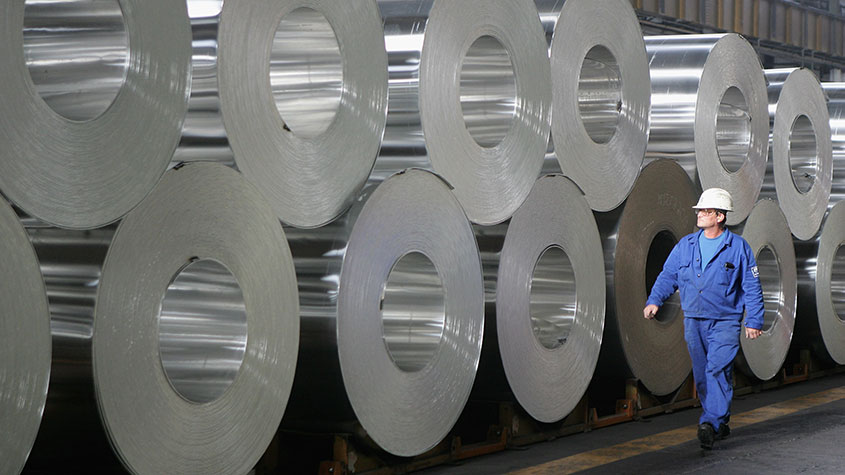 These 2 stocks are set to soar
These 2 stocks are set to soarTips The returns from these two aluminium and tin stocks could be spectacular when the commodity cycle turns says David J Stevenson.
-
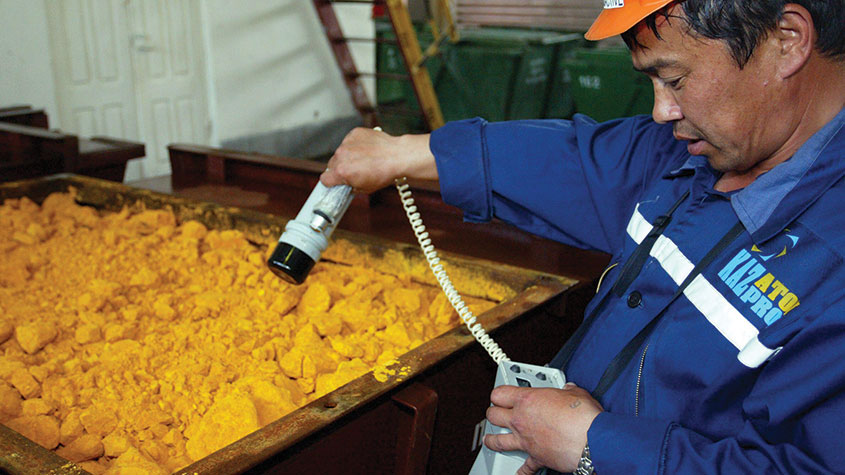 The best ways to buy strategic metals
The best ways to buy strategic metalsTips Weaker prices for strategic metals in the alternative-energy sector are an investment opportunity, says David Stevenson. Here, he picks some of the best ways to buy in.
-
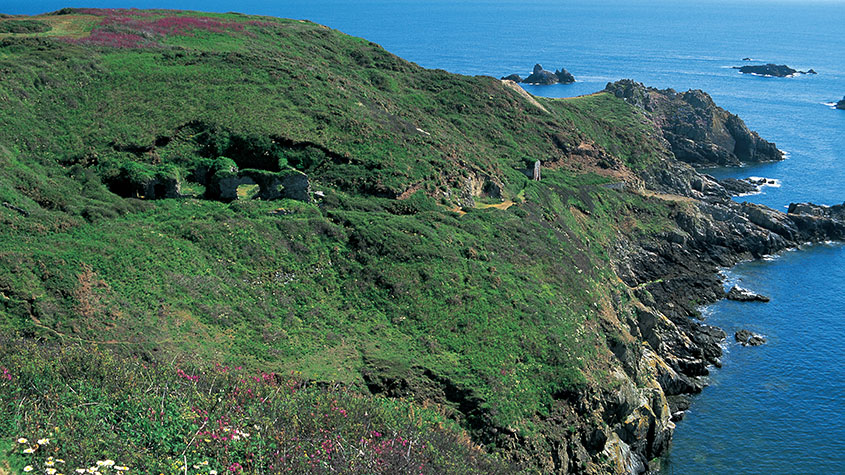 A lesson for investors from a ill-fated silver mine
A lesson for investors from a ill-fated silver mineAnalysis Mining methods may have changed since the industry’s early days, but the business hasn’t – digging ore from the ground and selling it at a profit. The trouble is, says Dominic Frisby, the scams haven't changed either.
-
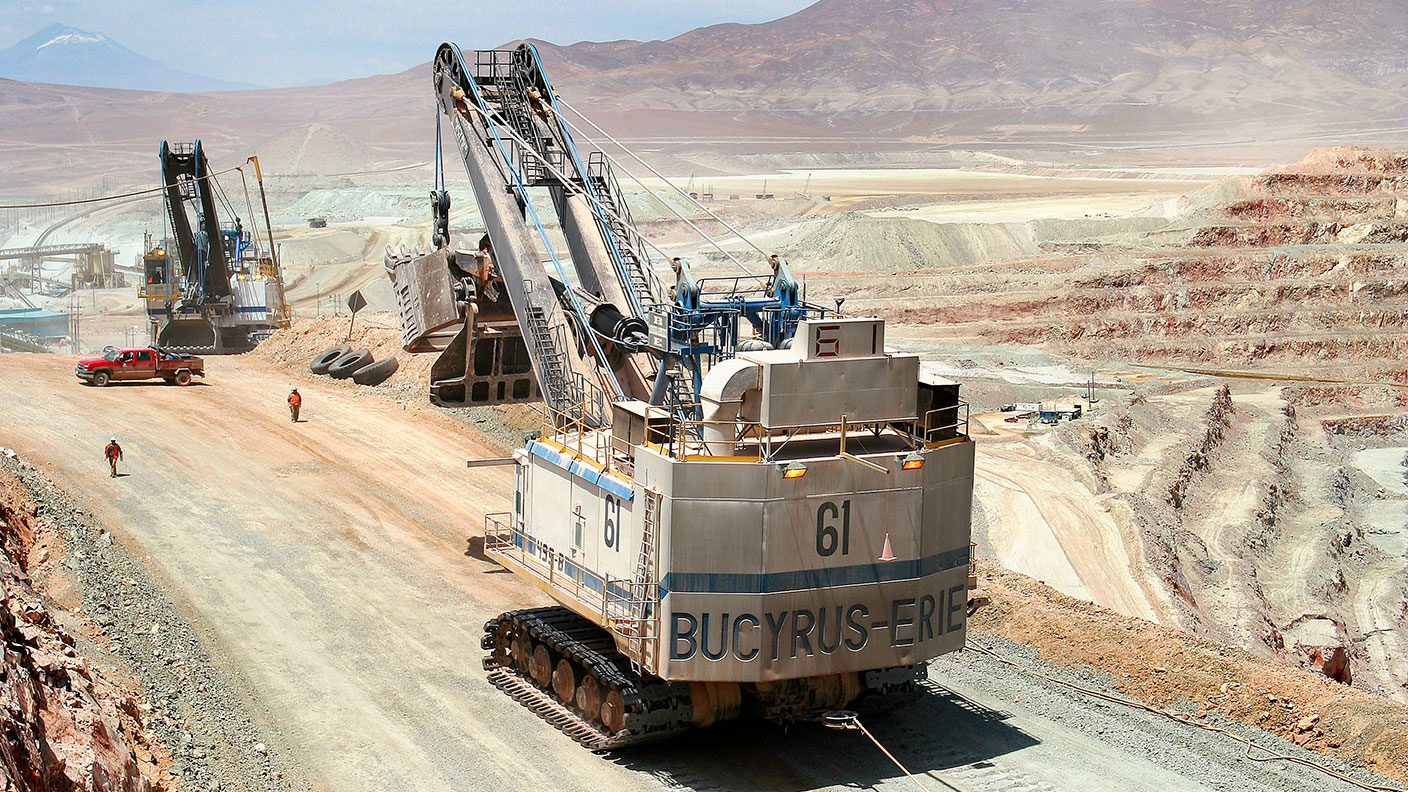 The natural resources industry is in a tight spot – which is bad news for the rest of us
The natural resources industry is in a tight spot – which is bad news for the rest of usOpinion The natural resources industry is in a bind. We need it to produce more energy and metals, but it has been starved of investment, plagued by supply chain issues, and hobbled by red tape. That’s bad news for everyone, says Dominic Frisby.
-
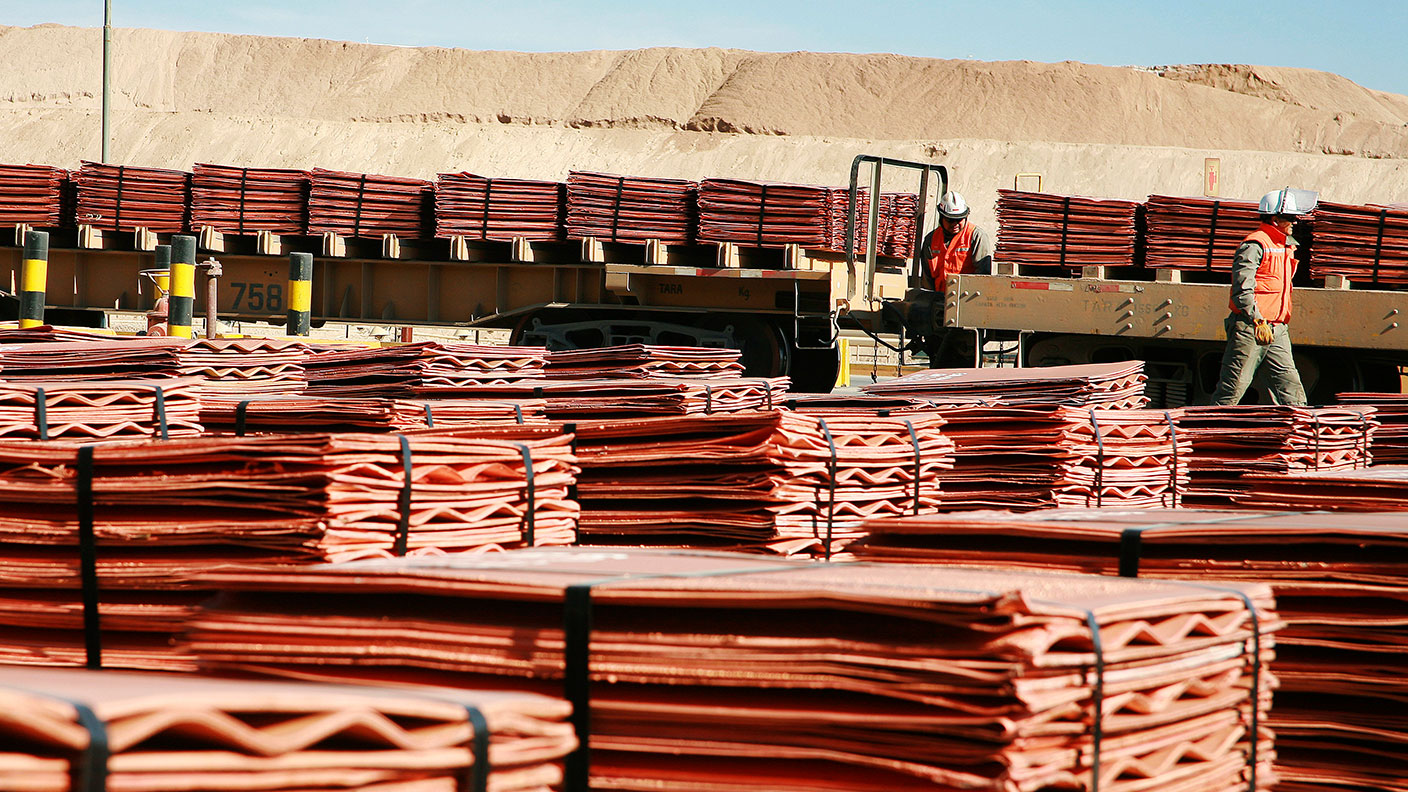 How to invest in the copper boom
How to invest in the copper boomTips The price of copper has slipped recently. But that’s temporary – the long-term outlook is very bullish, says Dominic Frisby. Here, he explains the best ways to invest in copper.
-
 Why investors should consider adding Glencore to their portfolios
Why investors should consider adding Glencore to their portfoliosTips Commodities giant Glencore is well placed to capitalise on rising commodity prices and supply chain disruption, says Rupert Hargreaves. Here’s why you should consider buying Glencore shares.
-
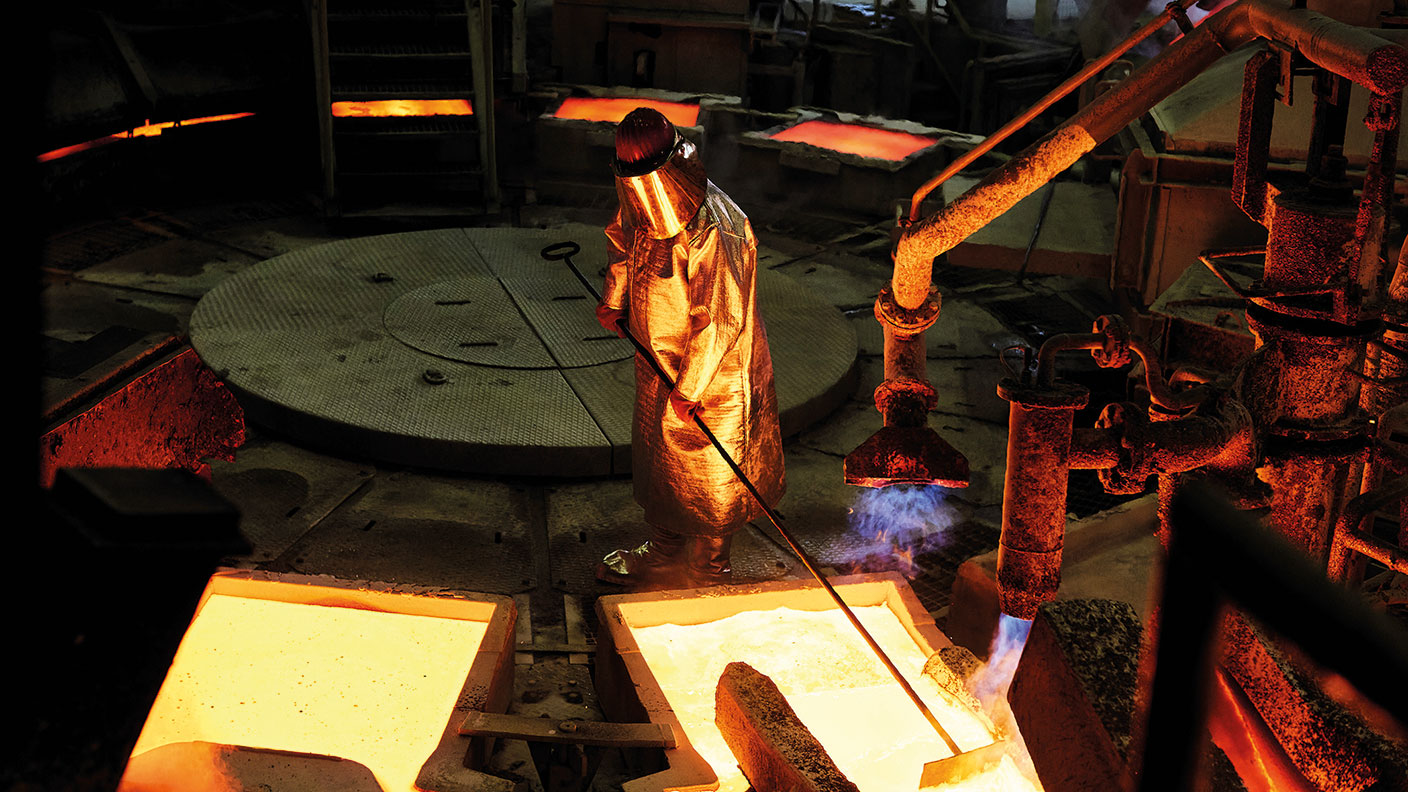 How to invest in the multi-decade boom in industrial metals
How to invest in the multi-decade boom in industrial metalsTips The price of key industrial metals has already begun to rise. The renewable energy transition will take them higher, says David Stevenson. Here's how to profit.
-
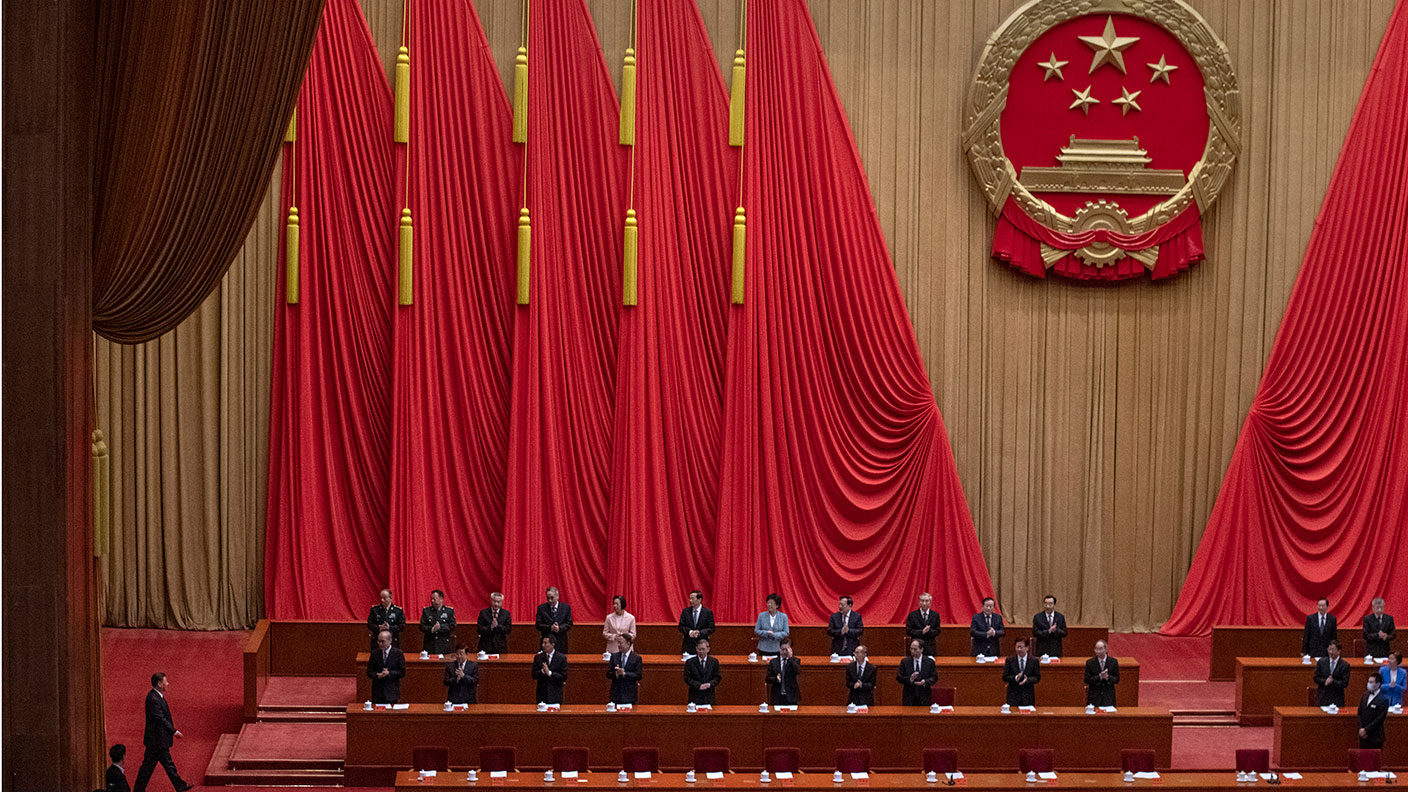 Avoid China’s stockmarket – here’s what to invest in instead
Avoid China’s stockmarket – here’s what to invest in insteadOpinion China’s stockmarket is not a good place for investors to be. But you can't just ignore the world's second-largest economy, says Dominic Frisby. Here, he picks an alternative China play.

